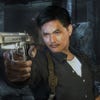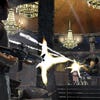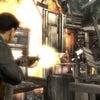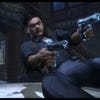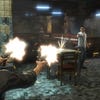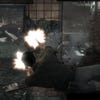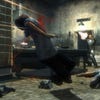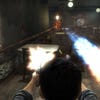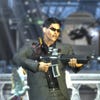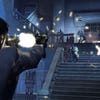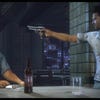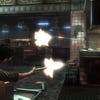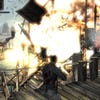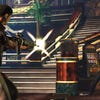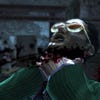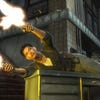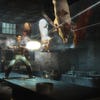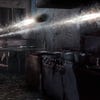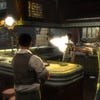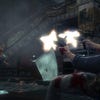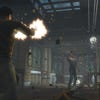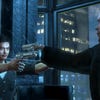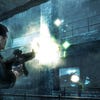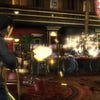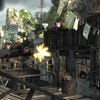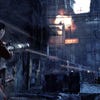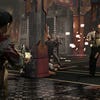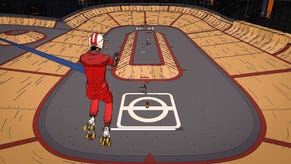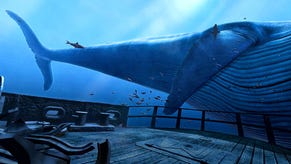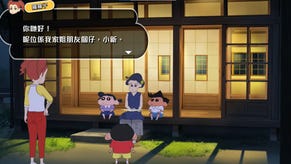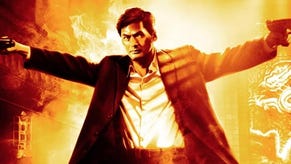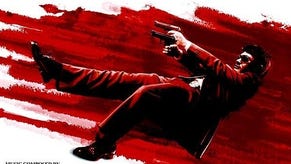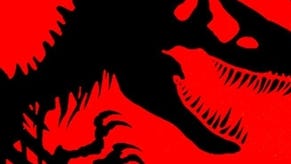Retrospective: John Woo's Stranglehold
When doves fly.
As I recall, the demos for Stranglehold and BioShock came out fairly close to one another. I certainly played them both on the same day. It was weird. It was like videogames' past had decided to pick a fight with its possible future.
The interesting thing is that, just as Rapture found its perfect custodians with the gloomy geniuses at Irrational, John Woo and Inspector Tequila fit right in at Midway. Particularly with regard to the the schlocky smarts of the Psi-Ops team handing the heroic bloodshed.
Midway - the home of Total Carnage and Mortal Kombat - always seemed to be the last hold-out of the arcade industry's sticky-floored, smoke-ridden origins. Not the refined, Street Fighter II kind of arcade experience, mind, but the coin-guzzling, gunfire-spewing, flashing-lights-and-dismemberment kind. Midway offered up colourful ketchup 'n' mustard exploitation and tended to serve it hot.
I often imagine the company's headquarters looking a bit like the back room of a run-down independent video store from the eighties: the blinds are pulled shut even though it's sunny outside, exotic warfare blares from tinny speakers buried beneath piles of laundry, dust hangs in the air and the whole place smells of men who probably have other places they should be.
Is it fair to describe Stranglehold as representing the past of videogames? The back of the box would argue that it certainly isn't, offering transmedia cuteness (Stranglehold's the sequel to John Woo's Hard Boiled), next-gen gimmickry such as location-based body damage and destructible environments, and plenty of Havok physics to mark this out as a modern videogame.
In truth, though, I'm not so sure about all that. What I love about Stranglehold - and I certainly do love it - is that it uses new tricks to deliver age-old pleasures. It's like putting that picture of dogs playing poker in a fancy frame you just picked up at Habitat.
That's not to say Stranglehold doesn't take its lineage seriously. From Hard Boiled, Midway's game inherits elegant slow-motion gunplay, cut-scenes that turn out to be a touch more stylish than most and a narrative tendency to become both inanely soap operatic and utterly confusing.
It also nabs Inspector Tequila and Chow Yun Fat, one of the most likeable of cinema presences even when he's grimacing through wretched toss like the last Pirates film. Tequila's his landmark role, though. He's best cast as a good man in a bad world - a good man who will make the bad world better by riddling it with bullets.
Tequila is the heart of the game, and not just because his is the only character model which isn't a gawping plastic-haired horror. His animation has a quiet stylishness to it even when he's just walking or reloading his smoking guns. The game moves at his elegant pace, automatically shifting into slow-mo Tequila Time whenever he slides across the floor, springs into the air or glides over a table while targeting an enemy.
Most of this stuff was stolen from Max Payne, granted. But Max Payne almost certainly nabbed it from Woo in the first place, so who's counting? All that matters is that Tequila Time adds an addictive style-based combo system to proceedings which games like Bulletstorm are only now starting to rework.
This allows every gunfight to feel like an event. You aim not just for kills but truly cinematic kills, shooting enemies down before they've drawn a bead on you as you swing from a restaurant lantern, kicking a table over to take cover and deal out headshots or wiping out a whole gang by flattening them beneath an advertising hoarding.
Standoffs, meanwhile, put you into fixed-position bullet exchanges which often involve so many participants you'll wonder where everyone managed to find a parking space prior to the ambush. Even the menu screens deliver balletic Tequila at his best, freeze-framing pretty chunks of catastrophe in a manner that's perfectly judged and strangely classy.
Stranglehold's brilliant, then, not just because it's captured cinematic gunplay, but because it's captured cinematic gunplay in the same leaping, bellowing, splay-legged way kids re-enact it in the playground - taking breathy cover against the assembly hall wall, or ducking behind a bus stop before popping out to put an imaginary bullet in a nearby dinner lady.

